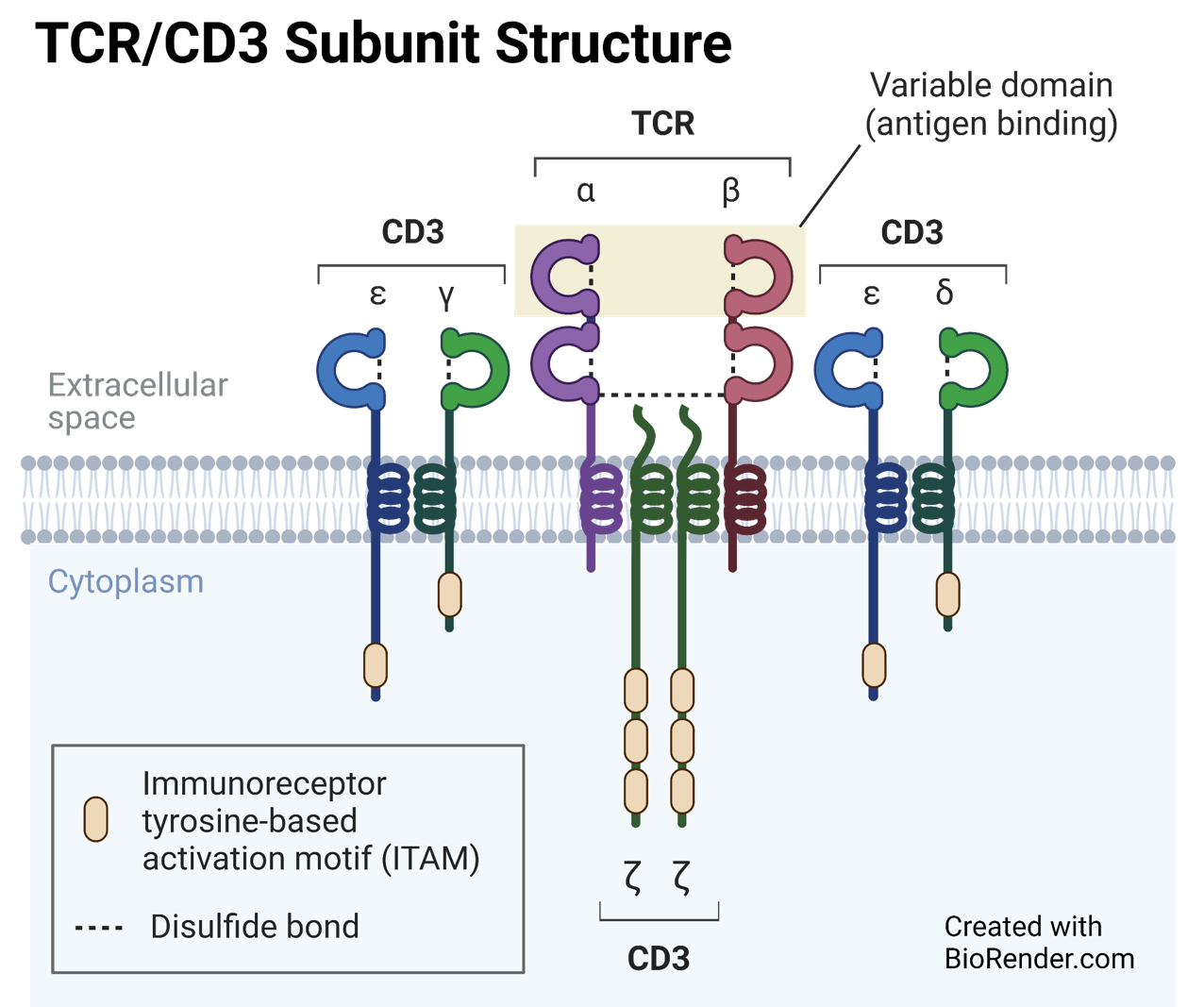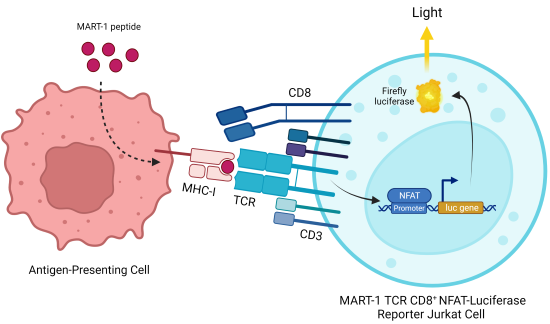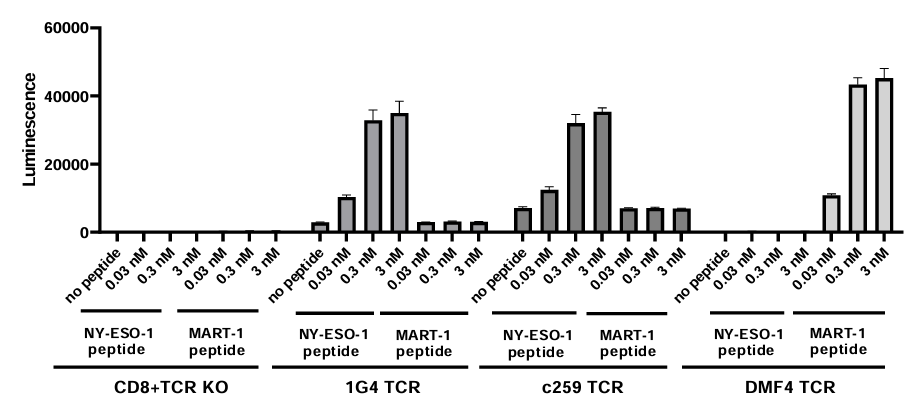Adoptive Cell Therapy Using Antigen-Specific TCRs
Engineered T cell receptors provide a promising therapeutic approach to fight cancer by focusing immune cells to target specific antigens.
Antigen-specific T-cell receptors (TCRs) play a crucial role in the adaptive immune response by recognizing specific antigen peptides presented by MHC molecules on the surface of infected or abnormal cells. These TCRs are typically found on the surface of T cells and are responsible for initiating immune responses against pathogens or abnormal cells, such as cancer cells. Sequencing of antigen-specific TCRs has enabled engineering of these TCRs into T cells. With this approach, T cells from a patient or from a donor are modified and expanded for subsequent infusion back into the patient to target and destroy cancer cells expressing the antigen.
BPS Bioscience has developed a new suite of tools to help scientists with their TCR development projects targeting NY-ESO-1 (New York esophageal squamous cell carcinoma) and MART-1 (Melanoma-associated antigen recognized by T cells).

Innovative Solutions for Antigen-Specific TCR Cell Therapy Research
Reporter Cells
Ready-to-use antigen-specific TCR-expressing reporter cells are available to support the design and optimization of co-culture bioassays, or to use as positive controls in bioassays.

Illustration of the functional co-culture assay used to validate the MART-1 TCR (DMF4) CD8+ NFAT-Luciferase Reporter Jurkat cell line (#78772).

Illustration of the functional co-culture assay used to validate the MART-1 TCR (DMF4) CD8+ NFAT-Luciferase Reporter Jurkat cell line (#78772).
Lentiviruses
Our off-the-shelf lentiviruses transduce immune cells of interest with antigen-specific TCRs to generate transient or stable cell lines. Lentivirus particles are provided at high titer and are ready-to-use; just add to cells and then select using puromycin if desired.
T Cell Activation using T2 cells as APC

CD8+ TCR knockout/NFAT Luciferase Reporter Jurkat cells (#78757) were transduced with lentiviruses expressing various forms of TCR by spinoculation at a MOI of 10. After 66 hours, the cells were co-cultured with T2 cells loaded with NY-ESO-1 peptide (#78758) or with MART-1 peptide (#78760) for 6 hours. The luciferase assay was performed, and the results are shown as raw luminescence readings.

CD8+ TCR knockout/NFAT Luciferase Reporter Jurkat cells (#78757) were transduced with lentiviruses expressing various forms of TCR by spinoculation at a MOI of 10. After 66 hours, the cells were co-cultured with T2 cells loaded with NY-ESO-1 peptide (#78758) or with MART-1 peptide (#78760) for 6 hours. The luciferase assay was performed, and the results are shown as raw luminescence readings.
Cells transduced with NY-ESO-1-specific TCR (clones 1G4, #78675, and c259, #78676) can be activated by NY-ESO-1 peptide, but not MART-1 peptide, while cells transduced with MART-1-specific TCR (clones DMF4, #78678, and DMF5, #78679) can be activated by MART-1 peptide, but not NY-ESO-1 peptide. Untransduced CD8+ TCR-Knockout/NFAT Luciferase reporter cell line, where no TCR is expressed, was run in parallel as a negative control.
Peptides
Native and mutated NY-ESO-1 and MART-1 antigen peptides can be used in competition assays or to load antigen-presenting cells used in co-culture bioassays.
Custom Antigen-Specific TCRs
Looking for a custom antigen-specific TCR cell line or lentivirus? We can help with that. Contact Us.

